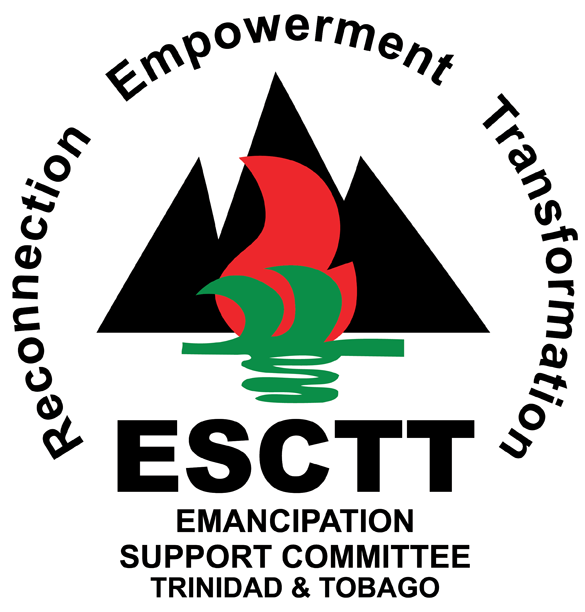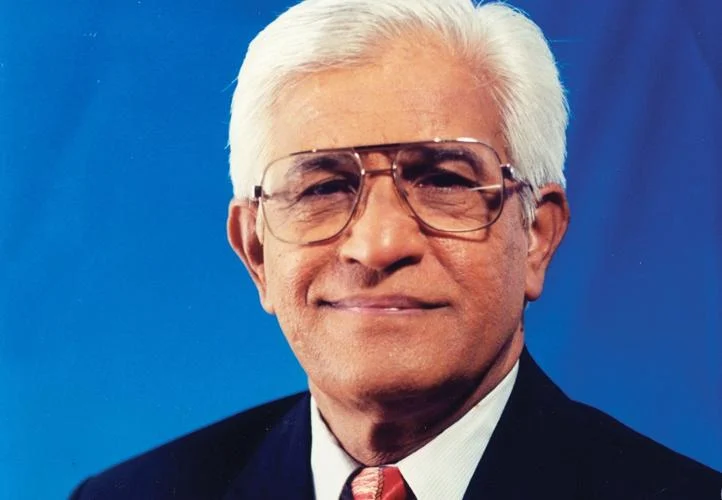On January 9, 2024 the people of Trinidad and Tobago witnessed the cremation of a former Prime Minister of
Trinidad and Tobago, Honourable Basdeo Panday. The Emancipation Support Committee of Trinidad and Tobago
[ESCTT] adds its voice to that of many organizations and the people of Trinidad and Tobago, who have expressed
their condolences to the family and friends of the former Prime Minister on his transition. In an unexpected way
the spirit of controversy and challenge to barriers which was part of his dynamic persona seemed to be
symbolically represented on January 9th in unexpected acts of two public figures who, in the absence of
invitations, literally crossed steel barriers to be part of his funeral service. Those who had the experience of
working with Mr. Panday could imagine his spirit smiling.
The former Prime Minister is warmly remembered by the ESCTT for his understanding and willingness while he
was Prime Minister of Trinidad and Tobago, from 1995 to 2001, to support the Committee in honouring a son of
the soil, internationally famous fighter for social justice and renowned Pan Africanist, Kwame Ture (formerly
Stokley Carmichael). In 1996 Honourable Basdeo Panday lifted the ban which had been imposed on Ture, enabling
him to return to Trinidad and Tobago to a hero’s welcome after years of exile. Khafra Kambon, founding Chair of
the ESCTT, often recalled the comradery and respect with which Prime Minister Panday greeted Ture during a
courtesy call at his office.
The recognition he gave to Kwame Ture however was no surprise against the background of some of the activities
in which Mr Panday was involved with students at the University of the West Indies St. Augustine during the late
1960’s, including the historic “Caroni March” of March 12, 1970 when Makandal Daaga, then Geddes Granger,
was President of the Students Guild. At that time Panday was best known nationally as a radical trade unionist in
the sugar belt and his popularity and activism complemented the effective public messaging of the Students Guild
Council and the on the ground work of Dr. Brinsley Samaroo and a group of Indian students at UWI. The combined
efforts played an important role in creating a welcoming environment for thousands of marchers from Northern
Trinidad, led by UWI students, to areas of central Trinidad in the historic “CARONI MARCH” on March 12, 1970.
He also delivered a powerful speech during the closing event in Couva (which is where the march actually ended).
He added drama to his words by organizing for a group of sugar workers to bring two of the massive, heavy chains
which they used up to that time to tie and drag the bundles of cane they cut to pick up points designated by the
British company, Tate and Lyle.
Tel 1- 868-235-5008;/ 868-633-9236 E-mail: info.emancipation@esc-tt.org Website: www.emancipationtt.com
Panday’s militancy in defence of workers, even those whom he did not formally represent, was demonstrated
during a historic bus strike in 1969 called by the Transport and Industrial Workers Union (TIWU) led by Joe Young,
a strike which was described by the Guardian as “a political confrontation with the government”. Indeed it was a
major confrontation between labour and the government since strikes, which did not formally seek and gain
approval by the government, were illegal under the 1965 Industrial Stabilization Act. TIWU leaders sought no
such (almost impossible to get) permission. The 1969 Bus strike was therefore seen as a direct confrontation with
the government and Cabinet decided to end it by force on May 13, 1969.
On the night before, a group of Trade Union leaders, a few organizers of Civil Society Groups, UWI lecturers Lloyd
Best and James Millette and UWI Students met with some leaders of TIWU, including President Joe Young and
Clive Nunez, at the union headquarters to decide on action in support of the union and the workers. Unionists
included Basdeo Panday, George Weekes – the President General of the OWTU – and Francis Beddoe – the then
President of the Food, Beverages and Allied Workers Trade Union. UWI students included then Guild President
Carl Blackwood, fmr President, Makandal Daaga (then Geddes Granger), Aiyegoro Ome and Khafra Kambon. One
of the actions agreed upon was for attendees at the meeting, not the striking workers, to block any buses being
driven out of the PTSC compound by strikebreakers.
Panday was among those who thrust their bodies upon the first bus the police directed to move out of the
terminus on the morning of May 13, 1969. Like most of those who participated in the daring attempt to abort
this bold move by the State to break the strike, he absorbed blows from police batons before being roughly
dragged to the waiting police bus which took all the protestors to Police Headquarters on St Vincent Street, Port
of Spain. Panday, very much like George Weekes (who received the most blows), was consistent in his support for
workers whether they belonged to his or any other union.
Panday also had his eyes set on politics. He became Youth Director of the Workers and Farmers Party (WFP)
formed by C L R James, at its birth in 1965. His outstanding role in Trade Unionism and mass mobilization,
particularly in the late 60’s, paved the way for his eventual rise to the Prime Ministership of Trinidad and Tobago.
Khafra Kambon
Director Regional and Pan African Affairs

